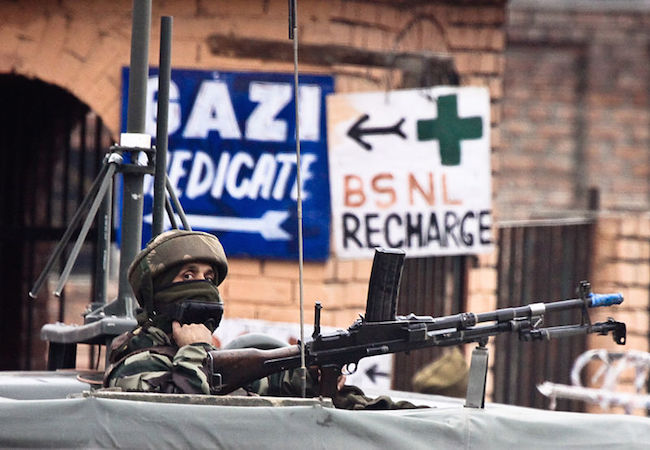
By Mir Aaqib
Jammu and Kashmir is truly described as the most scenic place decorating the peaks of Himalayan Ranges and is undoubtedly a jewel in the South Asia. The state has attracted tourists from across the globe enjoying the walks, the pony treks; the shikara and the tough mountaineering. The natives have always loved and served the guests in the most hospitable manner.
The latest report of National Crime Records Bureau (NCRB) – a division of the Ministry of Home Affairs, Government of India showing absolute absence of any criminal activity against the foreign tourists on the Kashmir soil has demonstrated the goodwill of the residents of the state.
While the murder of twelve foreigners, rape of nineteen and assault on thirty eight were part of the 382 crimes committed against foreigners in the mainland India, the conflict zone of Jammu and Kashmir showed absolute tolerance and respect for them.
The commendable behavior of the Kashmir populace earned headlines and appreciations from all corners of society added feathers to the socio-cultural heritage of the state. The people have proved their goodness and demonstrated humility and love for everyone across the shades of nationalities. Hold on! This is only a part of the story. There is flip side as well. The crime never disappeared from the scene. It was there and was sponsored.
The post-Burhan Wani shutdown for two quarters of the year depicted the criminal scenes in nook and corner of the state. Blinding, maiming, killing and massive and systematic damage to properties was state sponsored and employed as a tool to intimidate the local population, and this was all a continuum of decades’ long criminal way of conflict management. The crime was no more peripheral, it was a core policy component of the strategy for suppression. This criminality could never be documented as a part of NCRB report because crime was never defined from the states’ perspective.
The fact remains that the time NCRB was acknowledging J&K as a state with zero crime against foreigners, the men in uniform who are predominantly outsiders enjoyed a free hand in muzzling and muffling the inhabitants, and presenting a brutal face of occupation.
The hollow sloganeering of Kashmiryat, Insanyat and Jahmooryat was being tramples under the boots of soldiers assigned a job to guarantee the peoples’ freedom. The slogans were losing sheen as state was opting to a criminal behavior of imposing the silence on the seekers of fundamental rights. Had these crimes been documented, the details of crimes committed by the soldiers from the states of India would have shamed the democracy.
Once the crime is defined from the peoples’ perspective and the unprecedented cycle of violence is treated as a criminal behavior, the massacres, mass rapes, custodial killings, fake encounters, torture and enforced disappearances sanctioned by the impunity from the state shall question the very credibility of Indian state at the global forums. The popular love and care for the tourists and the brutal face of the state forces against the local inhabitants presents conflicting images of the population and the ruling regimes. Indian state has been celebrating the peaceful living of the foreigners on the Kashmir soil, and has been neglecting the human rights violations of the inhabitants, and hence makes India more extraneous in Kashmir.
The narrative of zero crime against foreigners on Kashmir soil should not be presented as absence of crime in the state, the crime exists here and the state sponsors the same. The perspective cannot be neglected; otherwise the hunter will continue to be glorified. True solidarity is found only in the plenitude of this act of love, in its existentiality, in its praxis, which India never opted in Kashmir.
Mir Aaqib is a student of particle physics at GDC Baramulla




